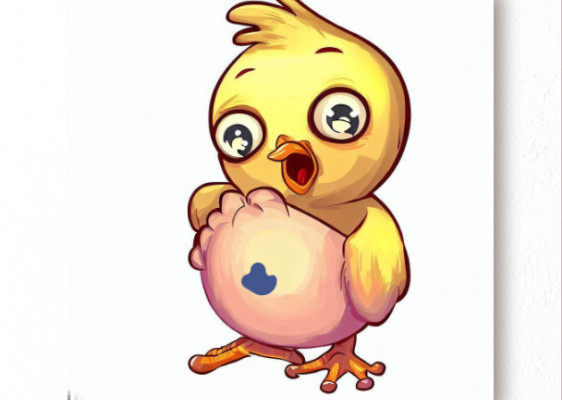Raising chickens can be an absolute delight, but as with all things delightful, sometimes it can get a bit… well, messy. One of the messier things you might encounter is “pasty butt” in chicks. This condition, though a bit icky to talk about, is common and crucial to understanding if you want to ensure the health of your feathered friends. So, take a deep breath, it’s time to dive into the not-so-glamorous world of chicken rear ends.
Understanding Pasty Butt
“Pasty butt”, also known as “pasting up”, is a condition where droppings stick to the down (fluffy feathers) around a chick’s vent (their all-purpose exit hole), clog it up, and can lead to serious complications or even death if not treated promptly.
I have a friend (and reader, YAY!) who recently purchased some pricey chicks from a very reputable hatchery. The chicks were in the best home they could hope for, but one day shortly after arrival in their brooder one of the chicks inexplicably passed away. It was pasty butt that got her!
Causes of Pasty Butt
There are various causes for pasty butt in chicks, including:
- Overheating: Transporting chicks in hot vehicles, or packages left in the sun can overheat tiny chicks quickly.
- Cold: If chicks become too cold, their digestive system can get affected, leading to pasty butt.
- Diet: Improper feeding can also lead to a pasty butt. For example, too much sugar or protein can cause digestive issues.
Identifying Pasty Butt
Look for these signs to identify pasty butt:
- Droppings sticking to the vent area
- The chick is not as active as others
- The chick’s vent area appears red or swollen
Hot Tip – Chicks should be drinking fresh room temperature water and should be hydrated before starting on chick starter feed. This ensures that all is well in the digestive tract right from the start.
Treating Pasty Butt
Treatment for pasty butt should be initiated as soon as possible to avoid any complications.
Immediate Care
- Gentle Cleaning: Use a warm wet cloth or cotton ball to soften and remove the droppings. Be careful not to pull or force the droppings off as this can harm the chick.
- Rinsing Under Warm Water: Run a light stream of warm water over just the chick’s bottom, loosening the paste as you rinse. Please be careful. Take your time and all will go well.
- Drying: Make sure the chick is thoroughly dried before returning it to the brooder by dabbing, not rubbing, a paper towel, or facial tissue on the wet area.
After cleaning is complete, a tiny smear of petroleum jelly can help to protect their little bottoms for a while.
Long-term Recovery
Ensure the chick stays hydrated and fed with a high-quality starter feed and monitor it closely for any reoccurrence of the condition.
Preventing Pasty Butt
Prevention is always better than cure, and the same holds for pasty butt.
Proper Brooder Temperature
Maintaining the correct temperature in the brooder is critical. Too hot or too cold can lead to stress and pasty butt. The recommended temperature for the first week is 95°F, decreasing by 5°F each week thereafter.
Nutritional Needs
Starting baby chicks with room temperature water instead of cold water can help prevent pasty butt by avoiding chilling the chicks.
Providing chicks with a balanced diet will help prevent pasty butt. A high-quality chick starter feed is recommended for the first few weeks.
Products to Help Prevent Pasty Butt
There are a few products on the market that can aid in preventing pasty butt.
Chick Feeds
Consider chick feed options like My Pet Chicken organic, soy-free chick starter. This feed is designed to provide balanced nutrition for chicks, which can help prevent pasty butt.
Brooder Equipment
A reliable brooder thermometer is essential for maintaining proper temperature.
When to Seek Professional Help
If the chick is not responding to home treatment or appears to be in pain, seek veterinary assistance. Pasty butt can be a sign of underlying health issues that require professional care.
While the term “pasty butt” may induce a giggle or two, it’s a serious condition that requires immediate attention. As chicken parents, it’s our duty to provide the best care for our feathered family members, even when it involves their less-glamorous end

